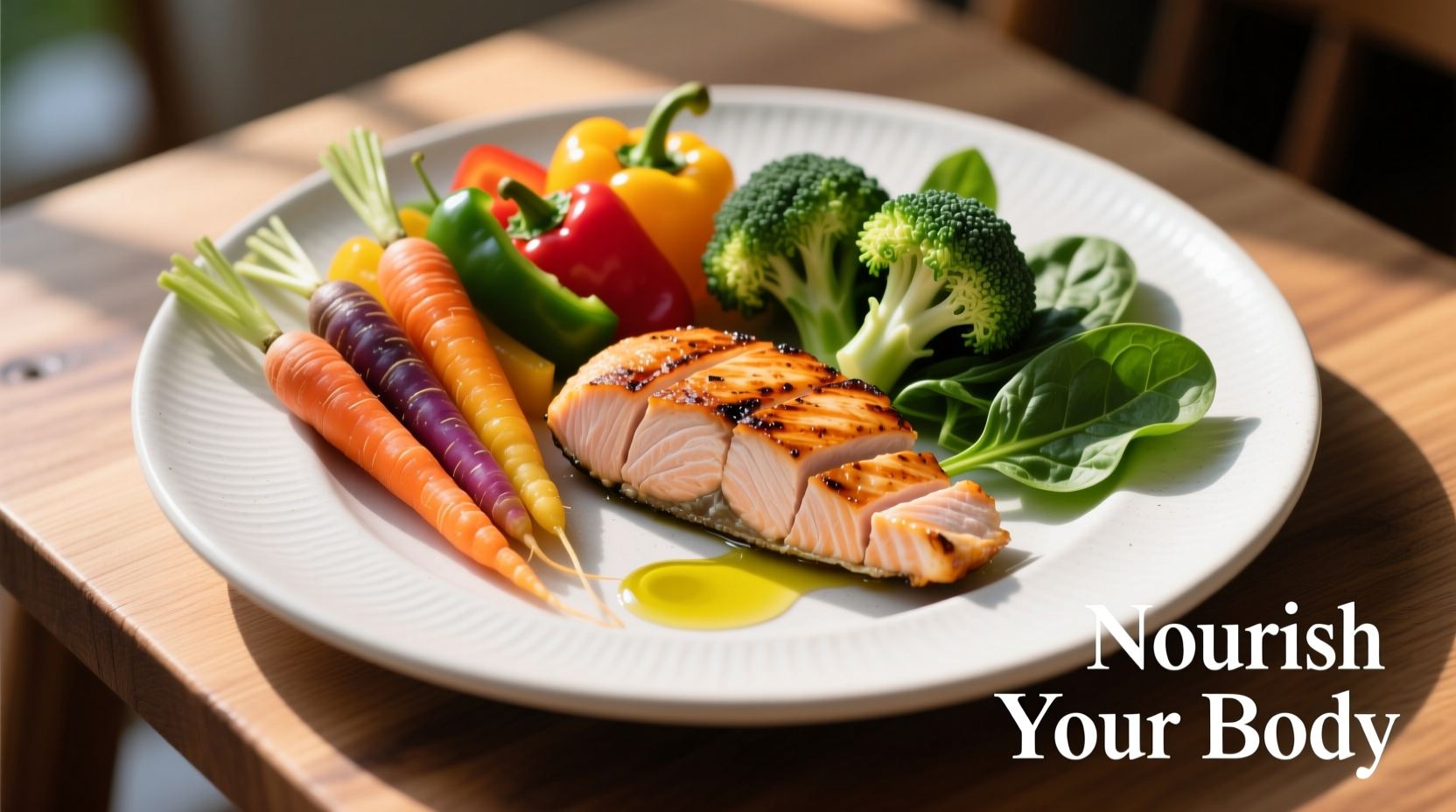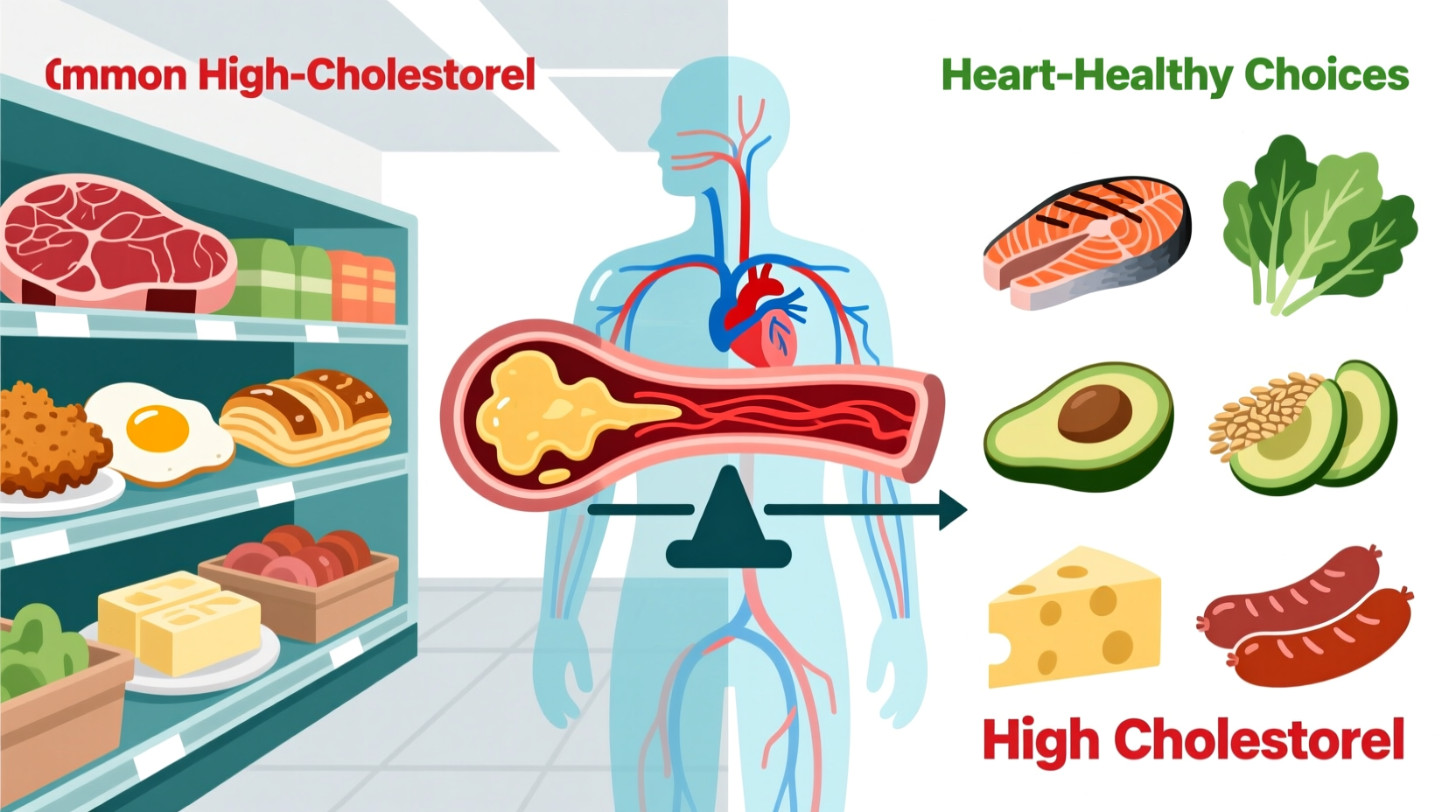Understanding Cholesterol: What You Need to Know First
Before diving into specific foods, it's essential to understand that not all cholesterol is created equal. Your body produces cholesterol naturally, but certain dietary components significantly impact your blood cholesterol levels. The real concern is LDL (low-density lipoprotein) cholesterol, which contributes to plaque buildup in arteries. HDL (high-density lipoprotein) cholesterol, conversely, helps remove LDL from your bloodstream.
According to the American Heart Association, saturated and trans fats have the most significant impact on raising LDL cholesterol, while dietary cholesterol itself has a much smaller effect for approximately 70% of the population. This scientific understanding has evolved considerably over the past decade.
The Top Dietary Offenders That Raise Cholesterol
When evaluating what foods causes high cholesterol, focus on these primary categories that directly impact your lipid profile:
Saturated Fat Sources
Saturated fats remain the most significant dietary contributor to elevated LDL cholesterol. The National Heart, Lung, and Blood Institute recommends limiting saturated fats to 5-6% of your daily calories. Common high-saturated fat foods include:
- Fatty cuts of beef, lamb, and pork
- Processed meats like sausages and bacon
- Full-fat dairy products (whole milk, cheese, butter)
- Tropical oils (coconut oil, palm oil)
- Baked goods made with these ingredients
Artificial Trans Fats
Partially hydrogenated oils, commonly found in:
- Fried foods (especially from restaurants)
- Commercially baked goods
- Margarine (especially stick forms)
- Non-dairy creamers
Trans fats not only raise LDL cholesterol but also lower protective HDL cholesterol, creating a double negative effect on heart health.
| Foods That Increase Cholesterol | Primary Problematic Component | Recommended Limitation |
|---|---|---|
| Fatty red meats (beef, pork, lamb) | Saturated fat | Limited to 5-6 oz weekly |
| Processed meats (bacon, sausage) | Saturated fat + preservatives | Avoid regularly |
| Full-fat dairy products | Saturated fat | Choose low-fat alternatives |
| Fried foods & fast food | Trans fats + saturated fat | Occasional only |
| Commercial baked goods | Trans fats + saturated fat | Check labels for hydrogenated oils |
How These Foods Impact Your Body
When you consume foods high in saturated and trans fats, your liver increases production of LDL cholesterol. This process doesn't happen overnight—consistent consumption over weeks and months gradually elevates your cholesterol levels. Research from the Harvard T.H. Chan School of Public Health shows that replacing just 5% of saturated fat calories with unsaturated fats can reduce heart disease risk by up to 25%.

Practical Dietary Swaps for Better Cholesterol
Understanding what foods causes high cholesterol is only half the battle—you need actionable alternatives:
Smart Protein Substitutions
- Replace fatty red meats with skinless poultry, fish, or plant-based proteins
- Choose lean cuts of meat when consuming red meat
- Incorporate fatty fish like salmon twice weekly for heart-healthy omega-3s
Dairy Modifications
- Switch from whole milk to 1% or skim milk
- Use Greek yogurt instead of sour cream
- Try avocado or nut butters as butter alternatives
Important Context: Individual Variability Matters
Not everyone responds to dietary cholesterol the same way. Approximately 30% of the population are "hyper-responders" who experience more significant cholesterol increases from dietary cholesterol. The National Institutes of Health notes that genetic factors play a substantial role in how your body processes dietary fats and cholesterol.
Other factors that influence your cholesterol response include:
- Your overall dietary pattern (Mediterranean diet shows protective effects)
- Physical activity levels
- Body weight and composition
- Existing health conditions like diabetes
For personalized advice on what foods causes high cholesterol specifically for your body, consult with a registered dietitian or healthcare provider who can consider your complete health profile.











 浙公网安备
33010002000092号
浙公网安备
33010002000092号 浙B2-20120091-4
浙B2-20120091-4